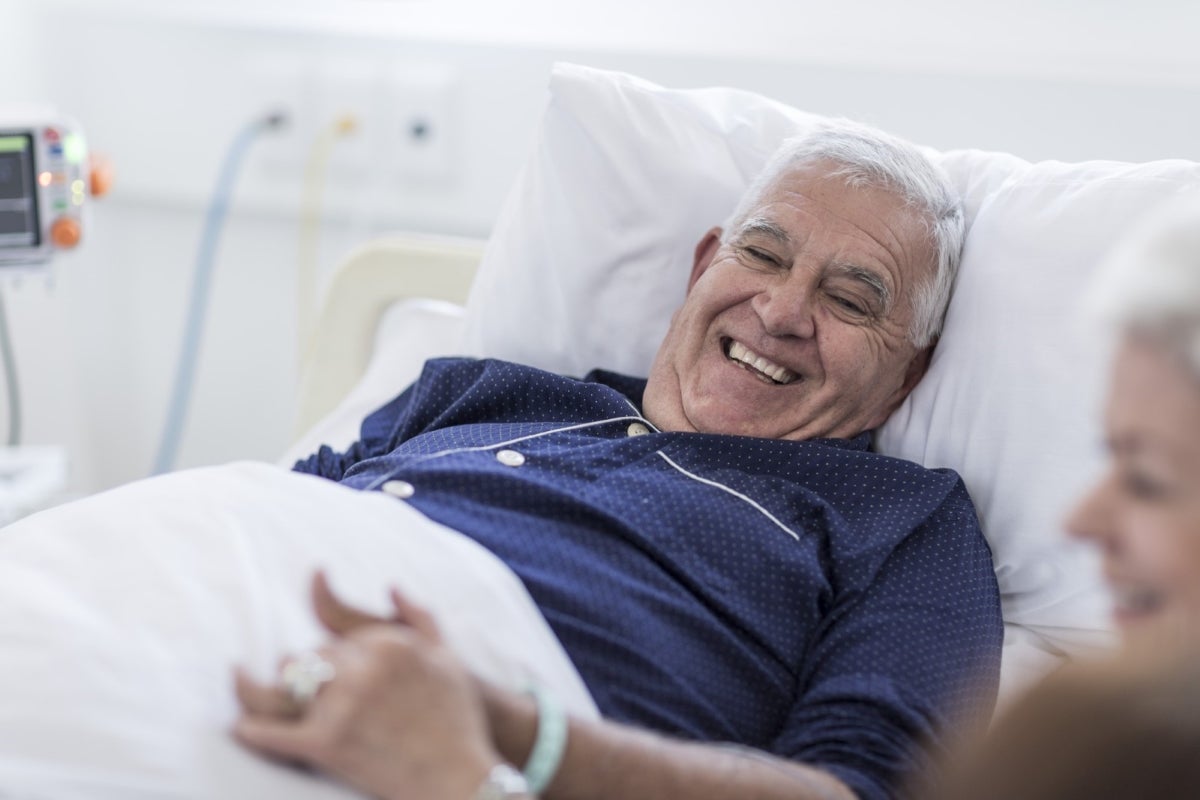
Care for heart and lung failure with ECMO
-
How does ECMO work?
A surgeon places one or more plastic tubes, called a cannula, into large veins in your chest, neck or groin. The ECMO pump circulates your blood through the machine’s artificial lung, or oxygenator. Carbon dioxide is removed from the blood and oxygen is added. As oxygenated blood leaves the oxygenator, it is warmed before returning to your body.
-
What happens while on ECMO?
A member of your care team is with you 24/7 to monitor your machine and provide care. Your doctor uses blood tests, X-rays and other tests to make sure you are responding well to your treatment.
-
Are there different types of ECMO?
There are two types of ECMO support:
- Venoarterial ECMO (VA ECMO) is used when the heart and lungs need support. The blood leaves the body from a vein, receives oxygen and is returned through an artery. This allows your heart and lungs to rest and recover.
- Venovenous ECMO (VV ECMO) is used for lung support when the heart is still working well. The blood leaves the body from a vein, receives oxygen and is returned through the same vein or another vein. This allows the lungs to rest and recover.
-
Can you be awake on ECMO?
Yes. Depending on your health, your care team may choose to keep you awake while on ECMO support. This allows you to participate in occupational and physical therapy to help build your strength and speed your recovery. Your safety is our priority, so your care team will keep you awake only in some cases.